Torturer of the unconscious and of the dark ravines of the individual and of reality, David Lynch has been able to give life over the years to his very personal way of making cinema, full of secrets, hidden sides, very high and vast knowledge, from psychoanalysis to oriental doctrines.
by Roberto Siconolfi
David Keith Lynch, American, one of the most significant directors of recent history, enigmatic figure of cinema, torturer of the unconscious and of the dark sides of the individual and of reality, a great scholar of a contemporary West in an advanced spiritual crisis. His cinema is full of secrets, insights, indications, hidden sides, very high and vast knowledge. From psychoanalysis, to oriental doctrines - he is himself a practitioner of transcendental meditation – up to esotericism in the broadest sense of the term.
In this article we will examine some of his works, in order to understand the pillars; boards that seem to constitute the true nucleus of his productions, defined too often by many "laymen". nonsense, and which instead are, in our opinion, filled with every sense.

“I prefer to remember things my way,” says Fred Madison star of Lost Highway (Italian title Lost roads), among the masterpieces of David Lynch of the nineties. The affirmation of Fred Madison (Bill Pulman), seems harmless or, indeed, apparently nonsense, but in reality it is the access key to the glimpses of the inner world opened up in this and other of his masterpieces: the "power of the mind", in power and delirium, in positive imagination and distorted projection, between service to reality and destructive hallucination.
The protagonist of Lost Highway, in fact, he is a fairly introverted jazz musician, in an unhappy period, even from the marital point of view, as emerges from the dialogues with his wife. The latter, the busty and sensual Renée - an aesthetic Patricia Arquette pin up – when fully valued it becomes a true element of conjunction for a descent into the darkest meanders of the husband's psyche.

On the other hand, a role that the director entrusts to the "woman" in more than one of his works (Inland Empire, Twin Peaks e Twin Peaks - Fire walk with me), film in which the woman is transfigured with respect to the simple physical-feminine presence, to become the trigger of chaos and dissolution. Solve of the alchemists, the “–” sign of the “complementary relationship”, the “destructive principle” of the great metaphysical traditions in general.
In Inland Empire the protagonist, Hollywood actress Nikki Grace (Laura Dern), superimposing herself on Susan or "Sue" Blue, the prostitute protagonist of the film she will have to play, reveals to a mysterious psychoanalyst her "lascivious", "bad", "cruel" behavior "As well as" false ". In fact, she reports that "when I get angry I get really angry", "I can't handle certain behaviors", that the one with whom she lived, unfairly "had taken it into his head that I had another man", but in fact "I was fucking a couple of boys, like that, but nothing special… ". And all seasoned with stories of men beaten - in defense he says - and with a lot of torn and torn eyes, and violently hit testicles (those of the "unjustly" jealous) and detached.
It is known instead, in Twin Peaks and in the film that serves as a prequel, the role of Laura palmer (Sheryl Lee): young only child of a good family, cocaine addict, whose life is haunted by an "entity" Bob, and able, whether he wants to or not, to drag all those who approach her into its darkness (lovers , friends and girlfriends). A type of great mater, worshiped in orgies and bdsm parties by "lustful men", to which he feels he belongs, as he reveals in his diary.

Returning to Lost Highway, Renée is the "black angel", the devil (from the Greek Διάβολος, "he who divides") that accompanies the protagonist in the splitting of his "I", a split that causes two effects. The first is the dangerous projection in a new protagonist, Peter Dayton (Balthazar Getty), who seems to emerge out of nowhere in the film, displacing the other characters themselves - “Captain! This is something to shit under! " says the prison officer to the director of the prison, where Fred was being held for the murder of his wife, after the sudden change of character.
A real "crystallization in matter" of its doubling, a "condensation of the psychic and emotional elements" forcibly "removed" and never "metabolized" (eg. beta) in a game of “projective identifications”, And which opens the door to the second of effects: reliving the same relationship story, albeit with different connotations, but with the incredible presence of the same woman.
From here on, the director's ability to leave the doors open to the viewer's free interpretation opens up and joins those few principles that truly dominate reality: the "eternal return of the same", the compulsion to live and relive the same situation, from an individual point of view or even more "incredibly" in the relational field.
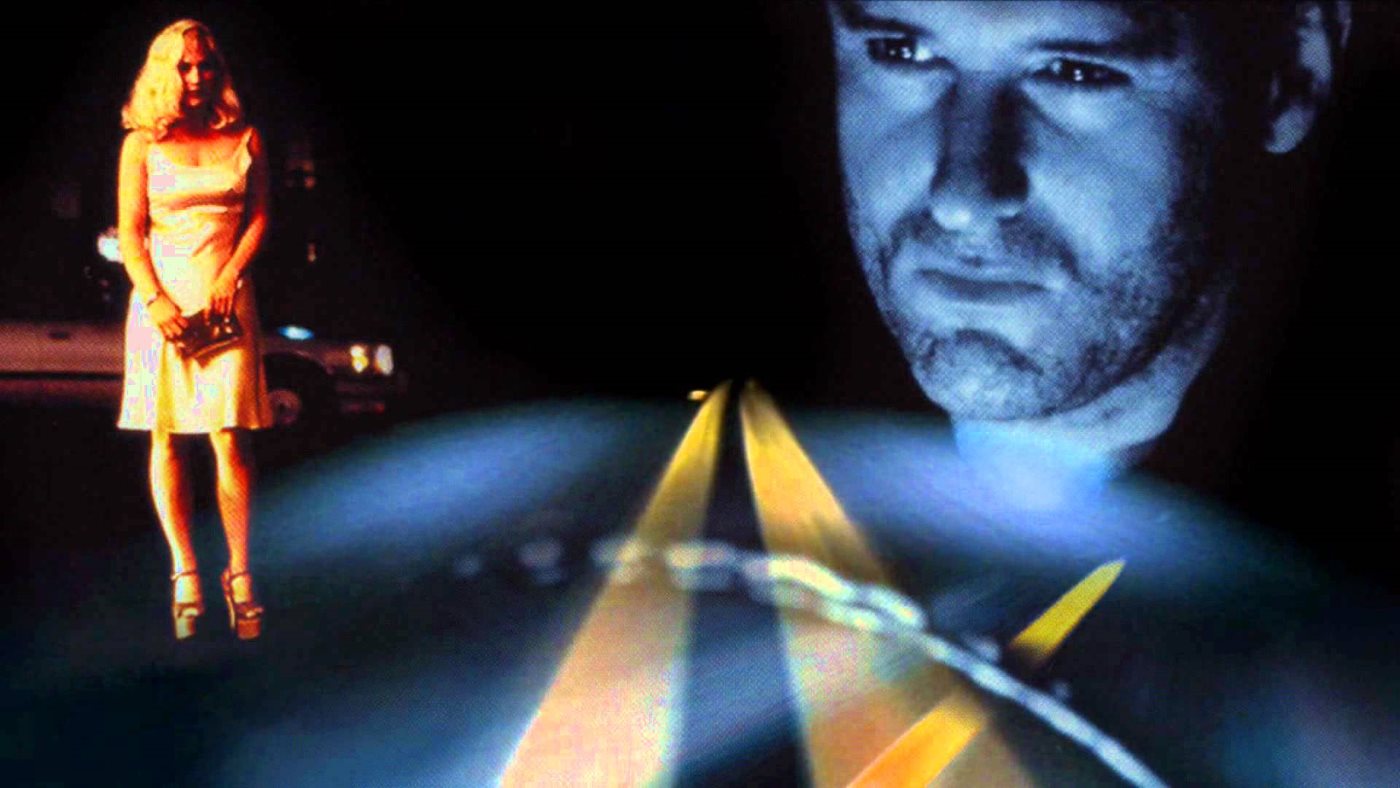
It is the "mystery man" (Robert Blake) with the monstrous face who directs this descent into the subconscious and unconscious elements, and to announce to Fred the necessary repetition of the experience, especially since he passes through the corridors of the prison where Fred is being held before becoming the new character. And then - at the party of Andy (Michael Massee), Renée's possible lover and friend of Alice (Renée, Fred's wife in the blonde version) -, with his "Have we met before?" And from there, when he asks him to call his home, where he himself (the mysterious man) replies – to be in two realities (here and there, wave and particle) at the same time.
From now on it will be Peter, the "projection", who will have to go all the way by reuniting with Fred, who towards the end of the film will kill the antagonist (Dick Laurent), who is at the same time the one who had threatened Pete for stealing from him the woman, and the one who approaches Alice/Renée to make her enter the world of porn, and always in the same place, where Renee had met her possible lover (Andy). After killing him he will return home announcing, practically to himself, what he hears on the intercom at the beginning of the film: “Dick Laurent is dead!”.
And here is the rewinding of the tape, the famous one Mobius strip which many connect to the concept of infinite, as some of film critics indicate. Concept that in a land of conjunction between contemporary science and metaphysics (pioneering research field of our era), represents, precisely, the cyclical nature of events. A space-time repetition that concerns the reality and life of everyone within the cosmos, and which draws on the already mentioned metaphysical traditions. These foresaw the cyclicality of time, rather than its linearity, and the non-locality of space (a conception also typical of quantum physics).

Repeat the same scenes in a perpetual manner, until their resolution! Scenes in which the visible and material aspects of reality change, i.e. the Masks, but not all: not the essential ones that remain “invisible” so to speak. The other "I", Peter, hates jazz, carries out a manual trade, is a mechanic, also has an influence on women to the point of conquering that of a gangster, Mr. Eddy / Dick Laurent (Robert Loggia). A story that overlaps in a specular way to that of Fred, but that does not really resolve the warp of experience in its repetition.
As we said, Alice is Renée in another form, but initially appearing as a defenseless princess to be freed from the clutches of a gangster, she reveals herself as a devious red light film actress - scene from the film accompanied by I put a spell on you of Marilyn Manson - who, finally, leads Pete to a murder - that of Andy - and then cheats him, dissolving the bond of complicity and unloading all the responsibilities on him.
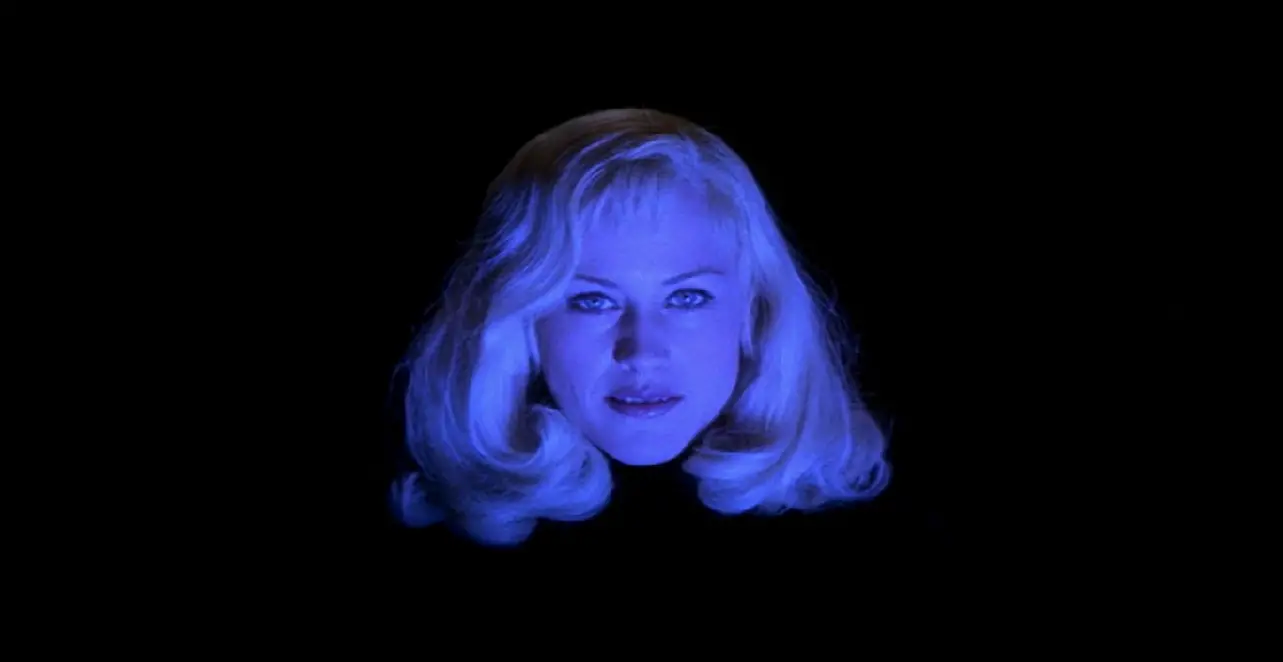
A story that on the one hand gives the strength to the first protagonist to kill the enemy Dick Laurent, with the help of"Mysterious man", who therefore represents a real one deus ex machina, an unexpected psychic resource within his subconscious / unconscious. On the other hand, this story remains "open", "pending", condemned to the umpteenth repetition, marked by the deafening vocal spell of Renée / Alice, who after making love with Pete whispers "I don't you will never have! ".
It is with this work that David Lynch confirms himself as a great “beater of roads”, showing a capacity, or rather a “gift”, that of letting the viewer imagine, while keeping coordinates that are always valid, so to speak “universal”. Among these coordinates there is one that emerges above all, and that is that of one's psyche, and consequently of one's life, one cannot do what one wants: there are experiences to be faced willy-nilly, under penalty of the aforementioned continuous repetition of the event, or the definitive "psychic derailment".
And it is in this "derailment" that the protagonist basks, perhaps solving it or perhaps not with the murder of his rival and his wife. In this regard, the song by David Bowie at the closing, and also at the opening, of the film is significant: I'm deranged (I am a deranged). The splitting of the psyche and the "projective identification" in a new character and in a new plot that overlaps the first and then rejoins it, is a leading theme also in Mulholland Drive and inland Empire.
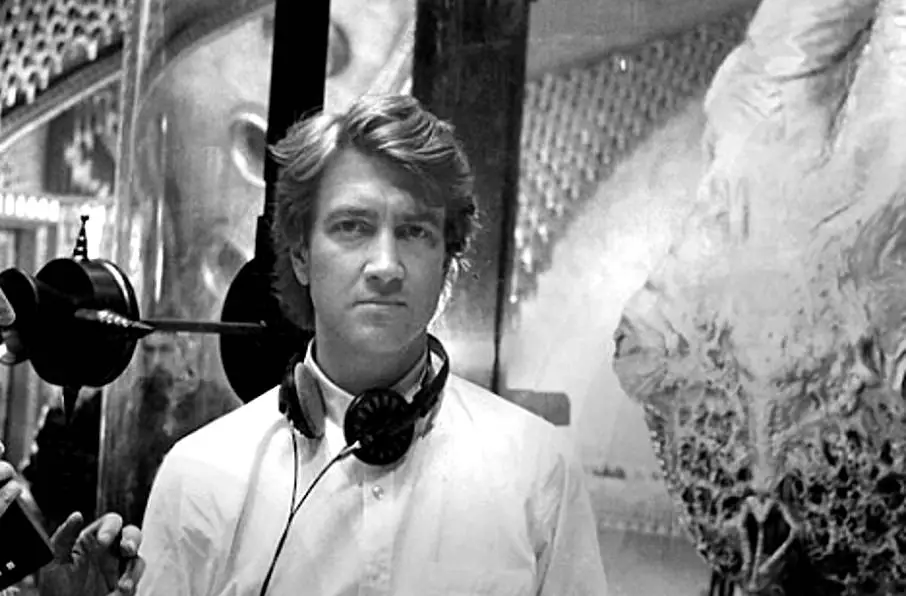
A game of doubling that is faced through some "gimmicks", such as the hallway of the house in Lost Highway, which represents the "dark corner" of consciousness in which the protagonist immerses himself, begins to "rework" and finally become the other character. Or the "blue box" in Mulholland Drive, delivered to the protagonist Betty, which allows her to finally reveal the reality of the events, as well as the falsification that she herself had produced.
In Inland Empireinstead, it is the actress who plays the role of Sue in the Polish film (see explanation below) who suggests how to access a "Other world", and through a hole caused by a cigarette burn in a silk cloth or, again, by visually entering the bedside lamp.
And then, there is also another possibility to act on reality. A way linked more to the manipulation of the "planes of existence", and which emerges clearly in the third season of Twin Peaks through the ritual of "Sexual magic". We also find the importance of sex not simply in a physical key but in a metaphysical key Blue Velvet, Ereserhead e Mulholland Drive.
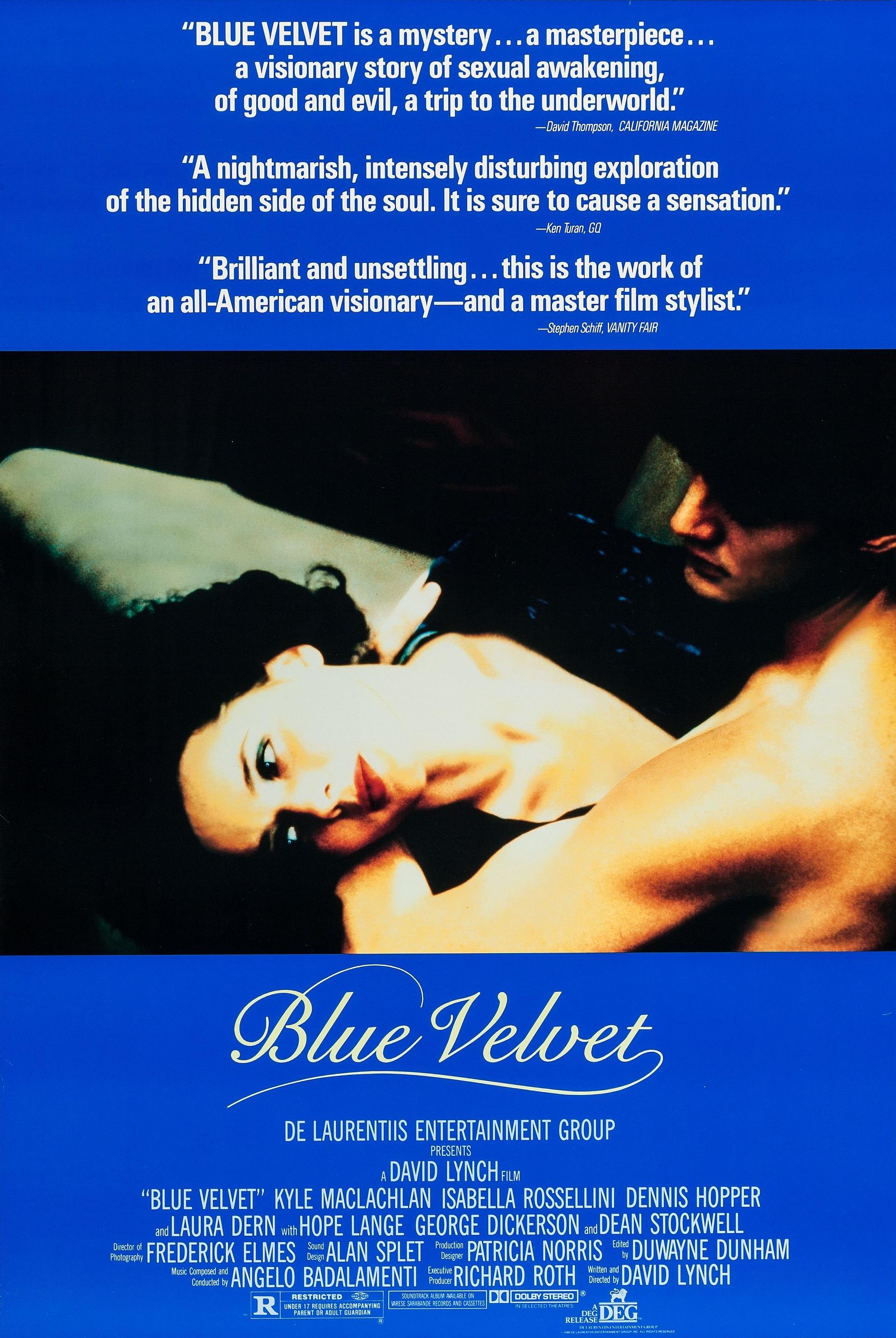
Thus, in Twin Peaks 3 the agent Dale Cooper (Kyle MacLachlan), performs a "tantric" ritual with Diane (Laura Dern): the very position of the two suggests this possibility, clinging the female, Diane, to the body of the male, Cooper, and playing a role " active "in intercourse (viparita maithuna). Or, similarly, one could hypothesize sex magic of Crowley style, following an intertwining that is described in The Secret History of Twin Peaks by Mark Frost, with the life of the occultist and aerospace engineer Jack parsons.
In fact, Diane resembles Marjorie Cameron, the red-haired actress who appears in Parsons' house - after he invoked the divine "whore of Babylon" in a ritual - similarly to Bob / Judy's entry into our " plan ”- Jowday or Judy is the real name of the entity that troubles the world of Twin Peaks, as revealed by Major Briggs to Officer Gordon (David Lynch) and Cooper. Through the magic sexualis a space-time passage is made towards another “plane of existence”, where the names change, those of Cooper, Diane, Palmer, and other pieces of reality will also change, such as the ownership of the Palmer house.

An intervention on space-time that is intertwined with another operation, when in the office of Sheriff Truman (Robert Forster) - the brother in this series - in the penultimate episode, which must be read synchronously to the last, the entity will be destroyed Bob / Judy, thanks to the phantasmagoric punch of Freddie (Jake Wardle). The purpose of the operation is to "act on time", and more generally on space, as demonstrated by the blocking of the clock hands in the sheriff's office. "The past determines the future", says Cooper, who meets the real Diane again and kisses her, then wishing: "I hope we will meet again, with all of you".
Cooper will be helped in this change of timeline - hypnologists would say -, by the mysterious agent Philip Jeffries (David Bowie) and also by the "one-armed man", who repeats the mantra “In the darkness of a future past the magician wishes to see. A man sings a song between this world and the next… fire walks with me ”. And then again, when he picks it up in the lodge before sending it back on a mission "is this the future or the past?"

Also interesting is the symbol of "Black lodge" which, thanks to the mechanism operated by Philip Jeffries, becomes that of infinity - many use it to represent the “Möbius strip” -, with a part inside that locates the new space-time destination. The aim of the attempt is to modify the event of the murder of the young Laura Palmer, to change the whole story of Twin Peaks with its malefic "incorporeal being" and the antagonism of the lodges, that of light (the white) and that of darkness (the black), and perhaps, more generally, to restore the "cosmic order".
A ritual, or magical, or action on timeline, to change the past and change the present and the future - the tricks of the trade. Act on space-time; perhaps by slightly mistaking the action. In fact, at one point Laura escapes from Cooper's hand, who "comes back" to take her out of the crime scene. A kind of "deviation" from the timeline - the drawbacks of the trade. After this space-time shift, Palmer is no longer Palmer and lives in Odessa, but as she gets back in the car with the agent - who looks like a hybrid mixed with Mr. C -, towards Twin Peaks, she reflects aloud " Odessa, I tried to keep the house clean, to always put everything in order, I tried "and again" is there a long way to go ?! "," I was too young then, I didn't have the slightest idea ".
So the two arrive at his old house, and converse with the new masters who do not recognize the reality as presented by Cooper at all. But as they leave the house, going down the stairs to the backyard, Laura suddenly remembers herself and immediately enters the other reality with a monstrous scream. Calculation errors on the timeline or a game of superimpositions between scenes, based on the opening and closing of dimensional portals and on the perpetual repetitions of events? It is Lynch's “open” cinema, as we said: “see what you want, in the light of a few universal coordinates”.

In Inland Empireinstead, the sexual magic ritual takes place between Devon Berke (Justin Theroux) and Nikki Grace, who plays Sue in the US / Polish film. From here this will enter another "zone", an area inhabited by a group of whores, probable further fragmentations of her "I" of hers. Each of them tells a piece of history "there was a man I once knew, I liked to spread my legs wide for him"; “He did that thing, yeah you know, that thing that he vibrates everything, while that's where… you know?”, “Wasn't he magnificent? Sihh ... "," I let him do whatever ... "," sihh ... "," sihh ... "," strange, what does love do "," it's so strange ". And then we start with the prediction of the plot and the conjunction of stories and characters - "In the future", "you will find yourself in a dream", "as if you were sleeping", etc.
The man we are talking about is probably one of the Polish gypsy company that is part of the other film, the one who asks to enter at the beginning (see explanation below), almost certainly the same one who tells the prostitute to undress but to not wanting to have sex. Perhaps it is what is called the "Phantom" or "Crumpy", a mysterious man who did strange things to people, endowed with mysterious powers, "disappear" and "reappear". The "floor change" is underlined by the flashing of red lights, in which the protagonist is found. Characteristic flashing, as a synonym for alert, also in the series Twin Peaks.
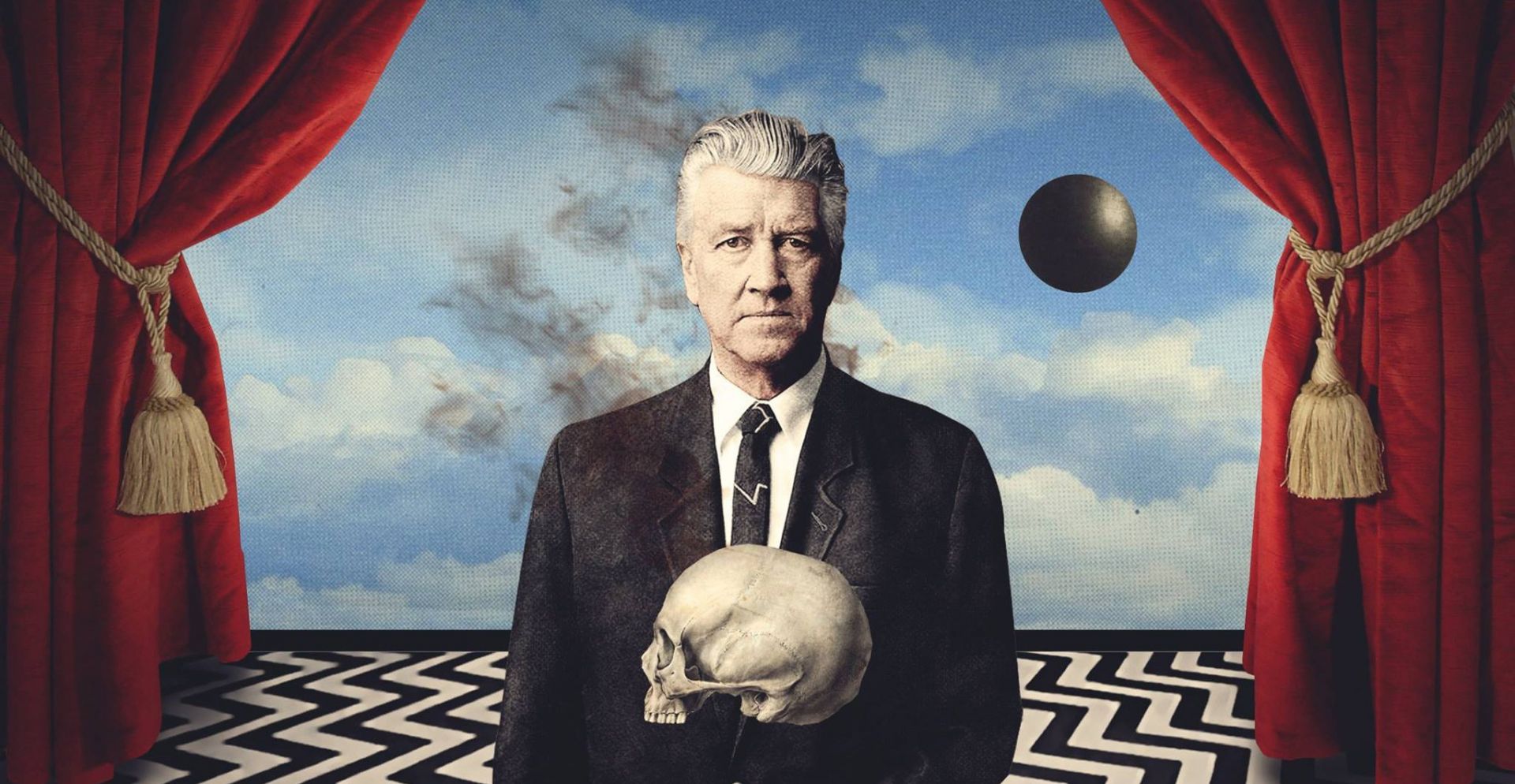
The gateway to Eastern doctrines in Cooper manifests itself on more than one occasion, and is revived by agent Gordon (David Lynch) in a dream by Monica Bellucci with the "We are like the dreamer who dreams and lives inside the dream: but who is the dreamer?" - echo of some verses of the Upanishad - “we are like the spider. We weave our life and then we move along it. We are like the dreamer who dreams and then lives in his dream. " Hence the connection to the scene of Twin Peaks: Fire walk with me, with Philip Jeffries and his “it was a dream, we live inside a dream”.
Without forgetting the tulpa, the incorporeal entities of the Buddhist tradition, created through meditative and psychic activity which, far from being simply imaginary, are instead real and sentient beings. A tulpa is created by Evil Cooper for both Mr. C (in the black lodge) and Diane (in the Gas Station Convenience Store) and Dougie most likely is too (the third Cooper, besides Mr. C).
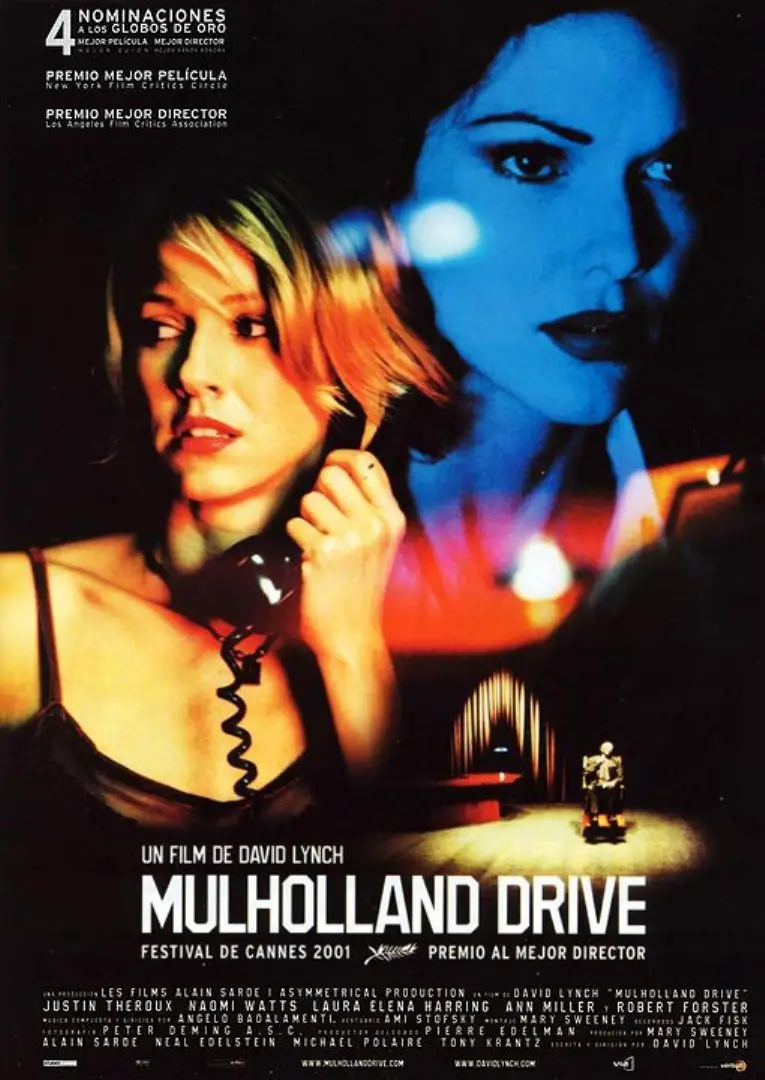
Returning to the splitting of the psyche in Mulholland Drive, actress Diane Selwyn (Naomi Watts) swerves into another life, another character and another story, that of Betty, a "lively" and "winning" actress, rather than a failure to whom they have blown the part and the man. In the new character, Betty, she will even have the ability to "sympathize" and welcome Camilla Rhodes (Laura Harring) into her apartment after a car accident, who has become Rita, the one who in the real story she gets killed for having stolen the part and the man .
Another “projective identification” in which a character mirroring the real one is also created is the scene in Silence Club, where the two friends go and the presenter explains in several languages that "Everything is an illusion", while Rebekah Del Rio performs in the Spanish version of Roy Orbison's song crying (Crying). But in the end the deception will be revealed: the protagonist, having learned the true reality, commits suicide in the throes of guilt, embodied, always in a mirror image, by the elderly couple who, in the imagined story, welcomes her to Hollywood.
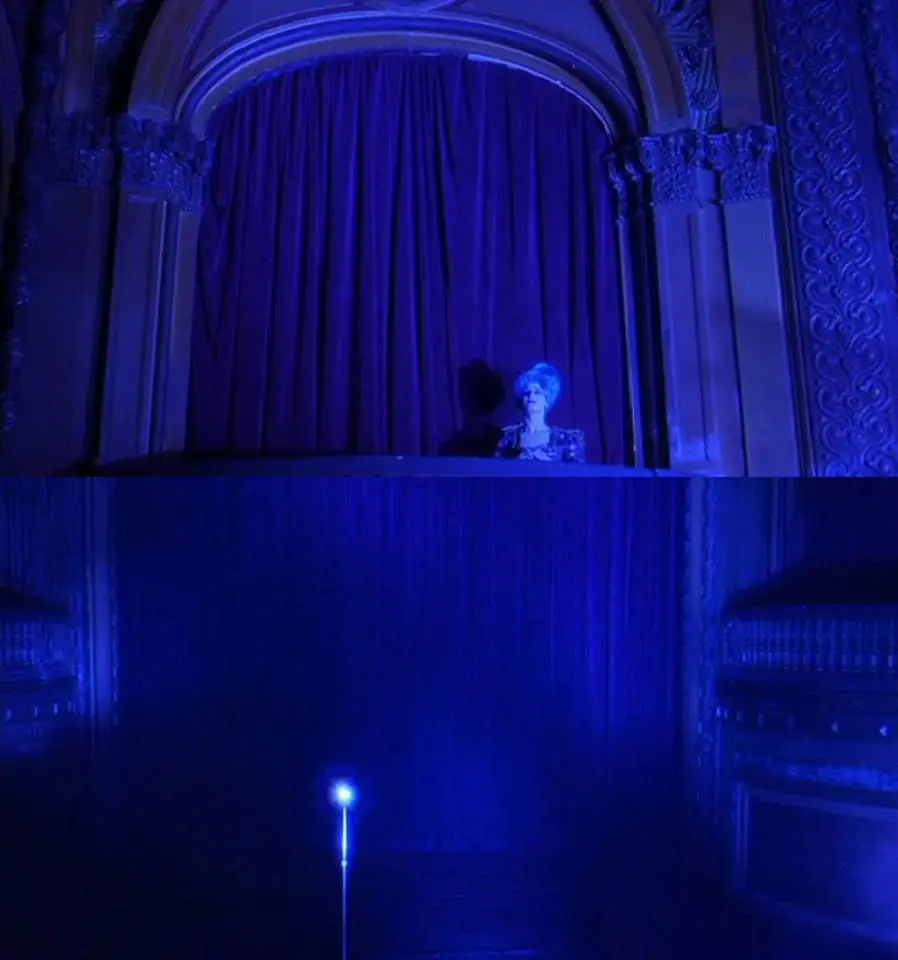
In Inland Empire, the "opening" is total: a game of sinusoidal overlapping that begin with the sex scene, and it becomes continuous, passing from a Polish film to an American film. The latter, unbeknownst to the various actors and the director (Jeremy Irons), is a remake of the Polish original whose shooting was interrupted due to the sudden killing of the protagonists. Nikki, finds herself reliving the main role of the original film, but also superimposing herself on the role she plays.
It is in this game of mirrors that he fits Rabbits (2002), an enigmatic series by Lynch himself, who in some scenes of Inland Empire accompanies the transition from Poland to the USA. The result is the whole game of overlapping experiences, through an equally enigmatic scene that involves the mysterious character, the Phantom, who talks about "entrances" with a phlegmatic man sitting on a sofa, to whom he vividly asks to "enter".
And from there, the shooting moves into Nikki's life, to which an elderly woman visits, a real "messenger" who announces that the part in the film will be given to her and that in the film there will be a murder. All seasoned with anecdotes about boys and girls, "reflections" in looking out over the world and relative "Birth of evil", streets for palaces and beneficial forgetfulness, bills to pay (karmic reactions to one's actions), and, finally, on time, its illusion and the magical art of manipulating it.
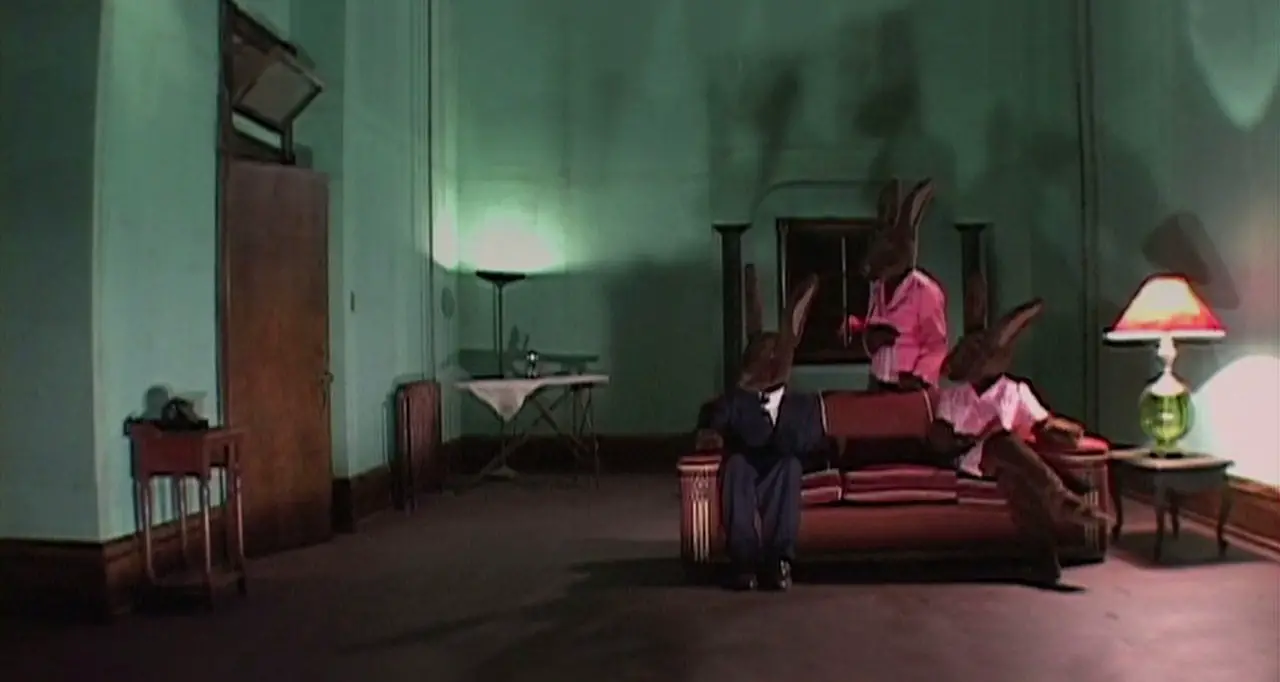
An art that the elderly woman seems to possess; the actress who plays her, among other things, is the same actress that in Twin Peaks plays the role of Sarah, the mother of Laura Palmer (Grace Zabriskie), also there in possession of strange powers of channeling - as well as Mrs. Log (Catherine E. Coulson) - capable of accessing everything that world inhabited, according to schools and traditions, by "intermediate forces", "magical creatures"," Incorporeal"," Demons ","fairies","jinn", Or, as one would say according to modern culture," aliens " (In Twin Peaks le abduction involving also the business of Major Briggs).
“Elements” that pass from mother, and father, to daughter in Twin Peaks: the same problems of "visions", "possessions" of Palmer's parents, are the same that characterize Laura herself. So in childhood Leland Palmer (Ray Wise) lets Bob "enter" her life, while Sarah communicates messages from unknown provenance to Briggs etc. The genesis of Bob, a malevolent entity has to do with nuclear testing in White Sands, New Mexico in 1945 (Manhattan Project), as shown in Twin Peaks 3 ep. 8 - and is announced by the piece by Nine Inch Nails She's Gone Away to the Roadhouse (the infamous Twin Peaks venue) - verses "You dig in places' til your fingers bleed / Spread in the infection where you spill your seed", ie "Dig until your fingers bleed / Spread the infection where you deposit your seed ".
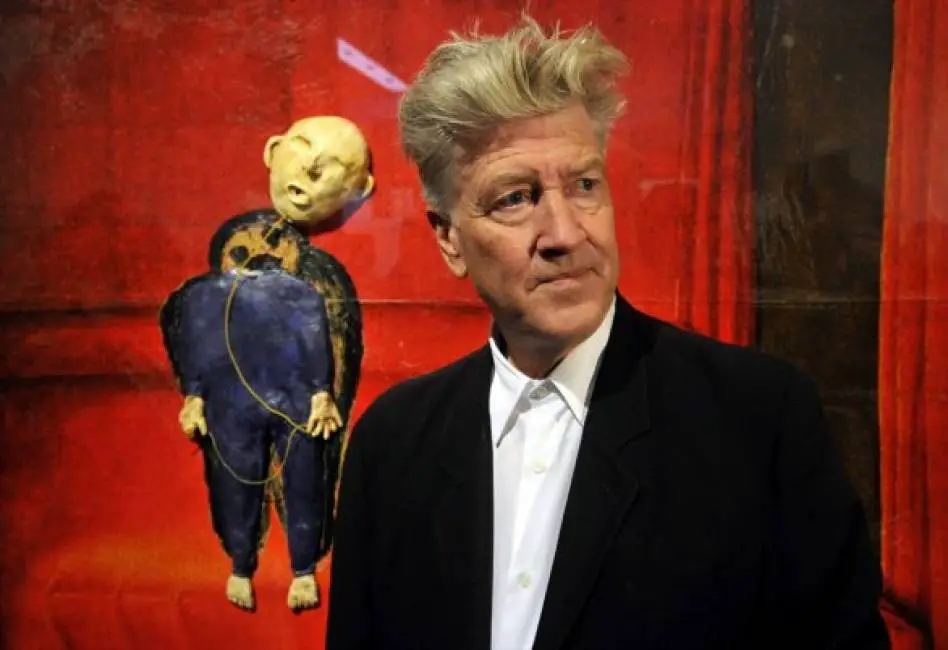
We can compare these experiments to an alchemical downward conversion ("gold into lead") or, playing with physics, and hypothesizing the transformation in the laboratory of "matter into antimatter". It is from this explosion that all are generated i Woodsmen (lumberjacks), "dark beings", terrifying, with dry somatic features and bare of life, who jumped out following the experiments, from a Gas Station (see petrol: another symbolic element of the transmutation of gold into lead), the same place where the tulpa by Diane. Beings that seem to support the doppelganger of Cooper (Mr. C), when he is shot to death, bringing him back to life, similar to what is done by Morgana and her fairies on Arthur's dead body at Avalon - in the first season of Twin Peaks it is mentioned Glastonbury as connected to the lodge.
The genesis of Bob / Judy continues in the form of a giant insect, parasitizing the body of a little girl, and is announced during a radio sound transmission from one of these. Woodsmen, with the famous magical invocation “This is the water and this is the well, drink deeply and descend. The horse is the whites of the eyes and dark inside ". Bob / Judy feeds on "garmonbonzia", A substance produced by forces of friction (pain and suffering), for which the various hierarchies of" invisible beings "of Twin Peaks and which looks like the loosh of the short stories of writer and researcher Robert Monroe, the "negative energy" always produced by the same forces of friction and useful for nourishment of "trans-dimensional beings".
To be honest, it will be discovered that Bob's genesis begins in other worlds, in a kind of Akashic field where all those forces that dot the invisible world of Twin Peaks and Cooper (eg the giant and Laura Palmer). A world from which they tune in thanks to the use of a technological device (similar to the one operated by the Woodsmen in Ereserhead), even the "very bad guys" of the series - the top of the American power -, and not infrequently linked to secret government projects (Blue Rose and the activities of Briggs), in a world symbolically located between sky and stars.
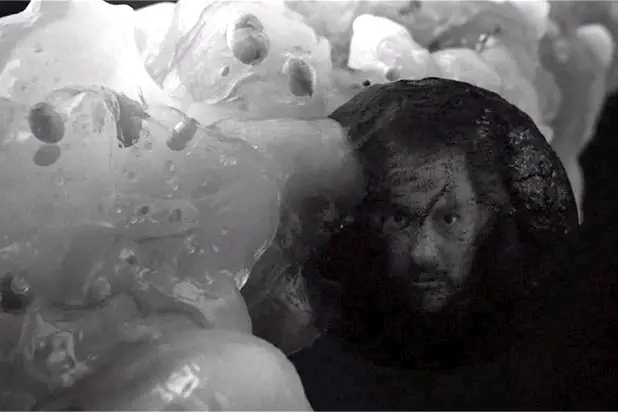

Hello, beautiful insight as always, but I take the liberty of making a small note. I don't know if by choice, or for other reasons, but in my opinion all the part that refers to the typical aesthetics of Lynchian films, namely the noir one, is missing. Impossible to ignore it as it permeates, both visually and in terms of content, his films. In turn, the noirs, as you surely know, were the result of their "dark" time, post-war and from Freudian and Jungian theories increasingly in vogue. When I think of the aforementioned lynch films, it is impossible for me not to see, as a cornerstone, absolute masterpieces such as "the stranger on the third floor", "doa", "Dangerous situation" and, above all for this specific case, Detour, also mentioned in the opening words of "Lost Roads". Film with a very heavy oneiric and therefore psychoanalytic component. Excuse the sting, but as a lover of film noir (I've seen hundreds of them) and cinema in general (I've seen thousands), I couldn't help but make this clarification. A greeting I always follow you.
I forgot "The shadow of the past", but the list could get longer ... here I stop!